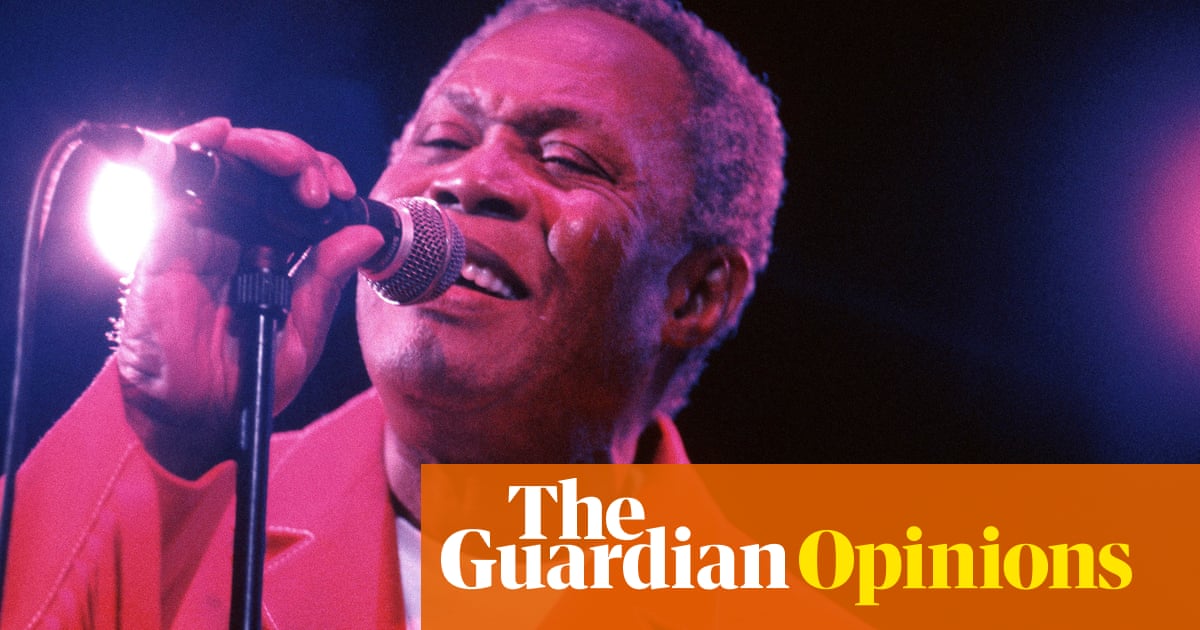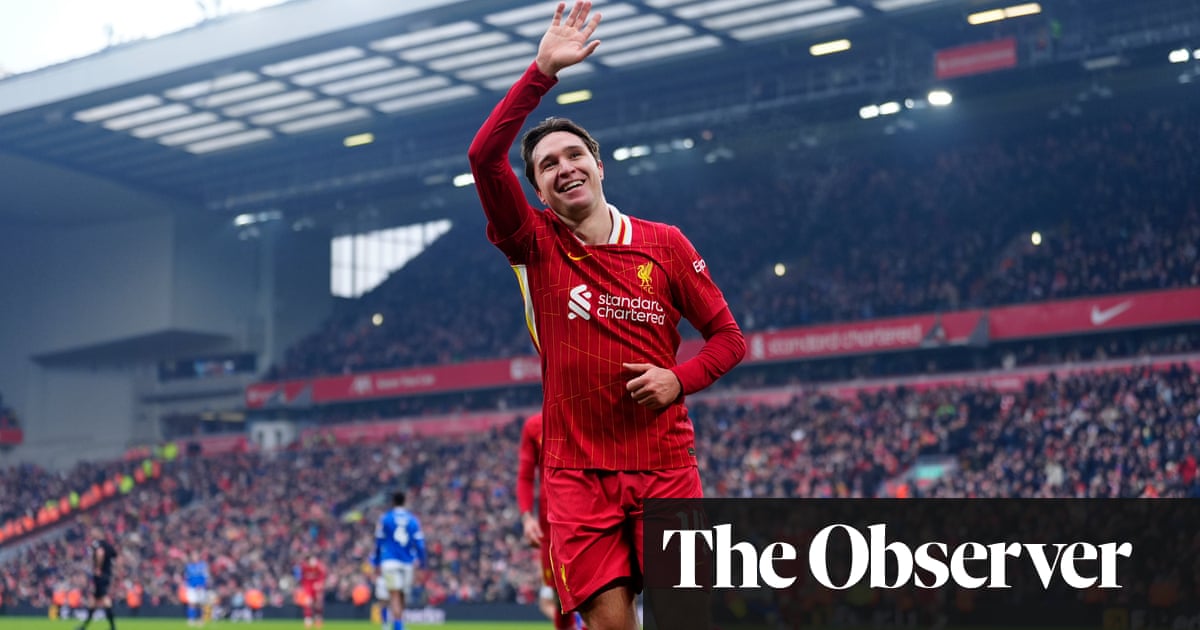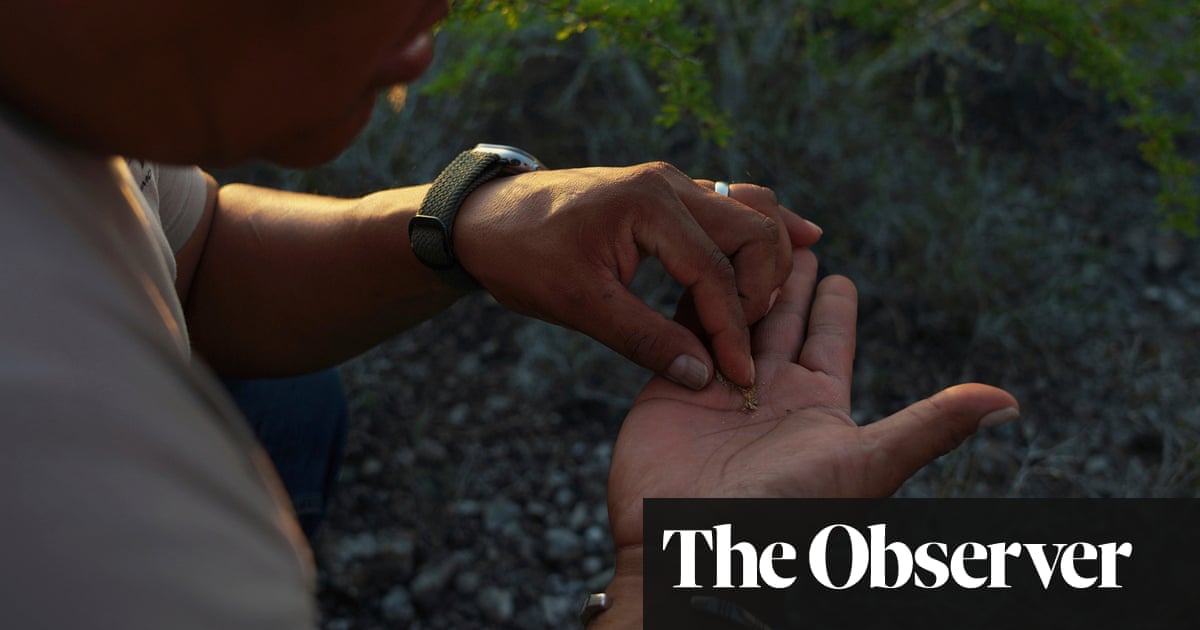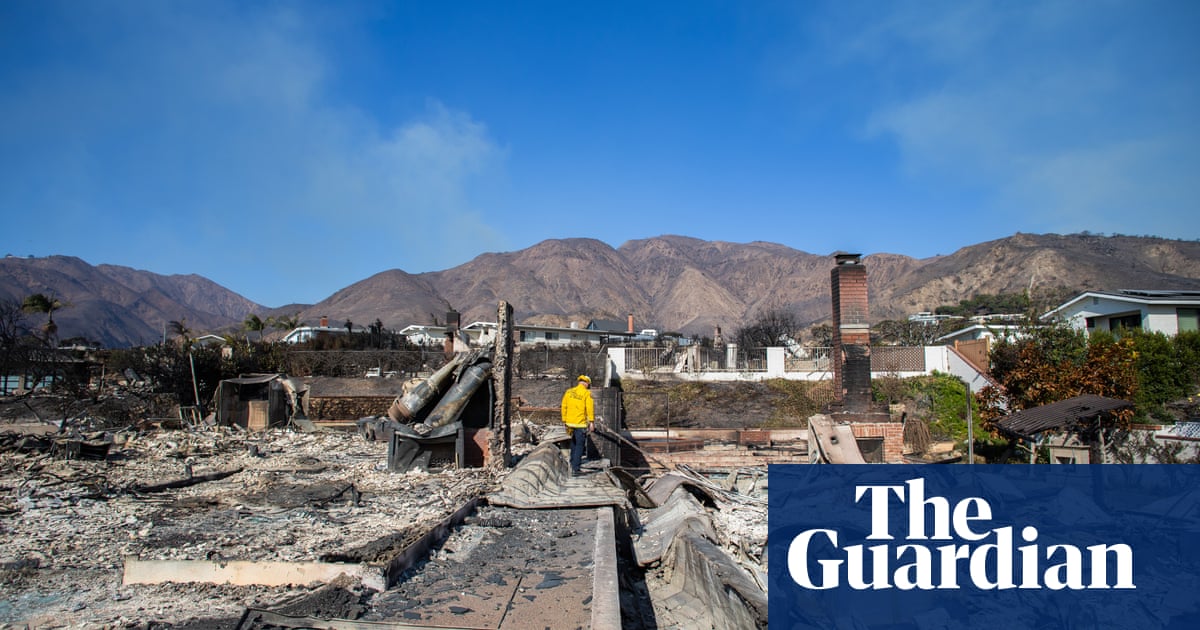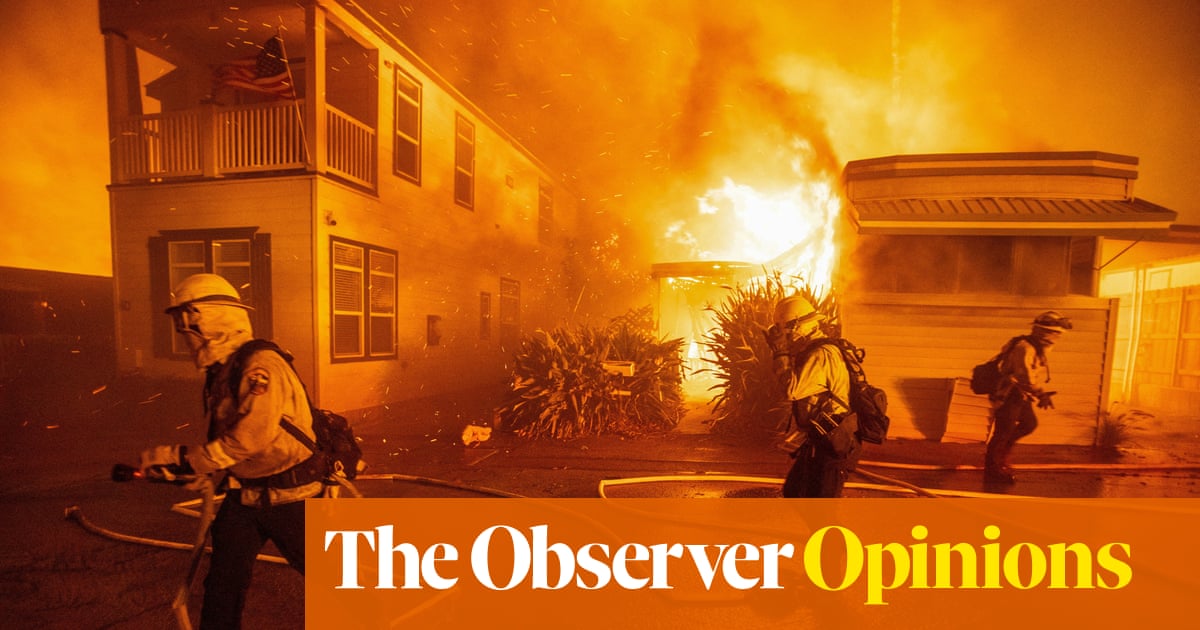Before I speak to Tim Robbins, the publicist for the series that he’s promoting, Apple TV+’s dystopian drama Silo, politely requests that our conversation sticks to the show and his wider career. No politics please. It’s a brave attempt at reputation management, and also a completely doomed one. Because, well … this is Tim Robbins! Has there ever been a Hollywood star more associated with the free mixing of performance and politics?
This is the man, after all, who was banned, along with his then partner Susan Sarandon, from presenting at the Oscars after using their hosting stint at the 1993 ceremony to draw attention to the plight of Haitians being held in Guantánamo Bay; who, again along with Sarandon, became a hate figure after forcefully opposing the war in Iraq; and who – in marionette form, at least – came to a fiery end as a liberal do-gooder taking on the Team America: World Police puppets.
The three fiction films he has directed have all felt strikingly political, too: Dead Man Walking (1995) affectingly told the story of a death row inmate; Cradle Will Rock (1999) considered art and socialism in the roiling 1930s; and, most memorably, the 1992 satire Bob Roberts imagined the political rise of a folk-singing rightwing firebrand, and has regularly been reached for by liberals hoping to making sense of the US’s former – and future – president.
It’s of little surprise then that throughout our interview Robbins instinctively turns to politics to explain his work, or his work to explain politics, from the prescience of Bob Roberts (“The warnings about the influence of media on political process were obvious for me back then … the film still holds its power”) to the parallels between Silo and the pandemic. What’s more surprising is that he doesn’t see the art he makes as responding to politics, per se. “[Making sense of] the political moment, that’s a little boring for me,” he says. “But the social moment, I’m always fascinated by. What the movements of cultures are, how they react to the challenges of their day.”
When we speak, Robbins first appears as a brown smear: he is running late after a long afternoon bike ride, and is trying to conduct the interview on his phone while cycling, but the camera is facing the wrong way, so all I can see is the muddy road in front of him. To add to the chaos, his phone battery is at a dangerously low level and might cut out at any minute. “There’s a lot of tension here,” he jokes. He does eventually make it home – battery still just about clinging on – to the London residence he’s staying in while filming a top-secret project (“I’m here till April, although I can’t tell you why”).
When he finally figures out how to work the camera, I’m greeted by a very different figure to the boyish star we all remember from Bull Durham and The Shawshank Redemption. Today the 66-year-old sports a bushy white beard, which along with his tendency to chuckle mid-answer, undercuts some of his more doom-laden pronouncements about the state of the world. (“I’m a big student of history, and we see, unfortunately, mankind always heading towards the same mistakes.”)

Silo definitely fits Robbins’s definition of a show that chimes with the “social moment”. Adapted from Hugh Howey’s series of sci-fi books, and now into its second series, the show imagines a future where some sort of catastrophe has forced the remnants of humanity to retreat into a vast, multilevel, self-sustaining underground silo. There they have been divided by class (those at the bottom of the silo’s 144 floors are at the bottom of society too) and are governed by a series of arcane regulations passed on by the community’s founders. The silo’s history is carefully controlled – its records were destroyed in some sort of rebellion, and the possession of “relics” – a hard drive or a camcorder, say – is strictly forbidden. So too is expressing a desire to leave the silo: do that and you will be made to go outside and face the surface’s unforgiving post-apocalyptic elements, a fate that equals certain death.
Or will it? What lies beyond the silo is one of the many big mysteries of a show that resembles a bleaker, more steampunk-ish Lost. “We’re having a great time [on set], but you would never know it from the tone of the show,” Robbins laughs. Hoping to get to the bottom of these mysteries is Juliette (Rebecca Ferguson), an engineer on the silo’s generators, who is convinced that she and everyone else aren’t being told the full story of the silo. Robbins plays Bernard Holland, the seemingly kindly head of IT who harbours a dark secret. For Robbins it was a juicy role to sink his teeth into, loaded with real-world parallels.
“I‘ve always wondered about what goes on inside of someone who has the responsibility of leadership,” he says. “How they rationalise actions seemingly antithetical to their mission or belief system because of the larger picture; the big lie for the greater good. We’ve gone into wars on this philosophy for years. So I’ve always been fascinated by what it does to a person’s soul.”

Robbins signed on for the show in the summer of 2021, drawn in by its resonance with current events. “Imagine reading these scripts when we were in the middle of lockdown,” he says. “It was like a gift, a blessing, as an artist, as someone who wants to do something that reflects the anxieties and fears of our own society. It seems very close to what we were dealing with on a daily basis at that time – the lack of transparency of information, the people being told by the government to limit their freedom for the good of all.”
Covid, and the institutional response to it, remains a raw topic for Robbins, even as that era disappears into the rear-view mirror for the rest of us. He rails against what he calls the “extreme censorship” of those times, and the effect it had on his industry. He postponed the reopening of the LA theatre that hosts his troupe the Actors’ Gang for six months due to California state requirements that audience members show proof of vaccination. “I didn’t believe that there should be a litmus test at the door of the theatre,” he says today. “I didn’t believe that that was in the spirit of what a theatre is. A theatre has to allow everyone in, of all faiths, beliefs, political persuasions.”
At times his stance has made for some unlikely bedfellows. He appeared on Russell Brand’s podcast in 2022, railing against “Orwellian restrictions” just as Brand was beginning his evolution into the Trump-curious, born-again Christian figure he is today. As such, some have wondered if Robbins might be undergoing some sort of realignment. After he tweeted angrily about the “deranged mindset” of conspiracy theorists claiming that the assassination attempt on Trump had been staged, an article in the Telegraph speculated, perhaps hopefully, whether he was on a “political journey” towards the right.
after newsletter promotion

That seems like wishful thinking. Covid often had an unhappy habit of dividing societies along tribalist lines (“So politicised, that whole era,” Robbins says), but the truth is that people are more complicated, and Robbins, for the most part, seems animated by the things he has always been animated by. Almost 30 years on from Dead Man Walking, he remains passionate about criminal justice reform: the Actors’ Gang, where he is artistic director, runs a programme that aims to rehabilitate prisoners in California through theatre.
Today he is particularly keen to highlight “inhumane” working practices in his own industry. He is proud that on Silo no one works more than 10 hours a day – an unusually sensible workload by entertainment industry standards – and expresses frustration that Hollywood labour unions didn’t push for similar demands during last year’s lengthy strikes. “Actors have it easy, they don’t work every day,” he says. “When they finish their job they go to have some time off, do a different job. It is crews really that you’re talking about. What winds up happening is that you have people on these crews that are overworked, exhausted, and don’t have the emotional input that one needs to live a rounded life.”
He fears for a Hollywood that has been upended by the rise of streaming services, and is increasingly governed by algorithms that prioritise more of the same over anything sui generis: “You go on Netflix right now, you see what films are coming out and you tell me that that’s the future of cinema? We’re in big trouble.”

Which perhaps explains why Robbins has become less of a regular fixture on our screens. He last made a movie in 2019 – the excellent, underseen environmental legal thriller Dark Waters. But for all his reservations, he thinks that good work will still be seen if it’s put out there. His most famous role is proof of that.
“We’re at 30 years now [on from] Shawshank Redemption,” he says, his eyes widening at the thought. “When it came out it got good reviews, it got nominated for Academy awards, but nobody saw it. It was VHS and [Ted] Turner playing it on his television channel [Turner Classic Movies] that changed that. That is a beloved movie. It remains on top of IMDb as the most favoured movie of all time. So I know that a quality movie, a quality television show, will last. Whether it’s a hit or not is irrelevant compared to what people are going to think about it in 10, 15, 20 years.”
Robbins these days is thinking about the long game, picking roles that capture the social moment, and hopefully will grow with time like Shawshank has. “The main thing for me, at this stage of my life, is that I don’t want to waste my time on a set doing something frivolous,” he says. “I don’t want to be there for the sake of being there.”
New episodes of Silo are available Fridays on Apple TV+.

.png) 1 month ago
16
1 month ago
16




